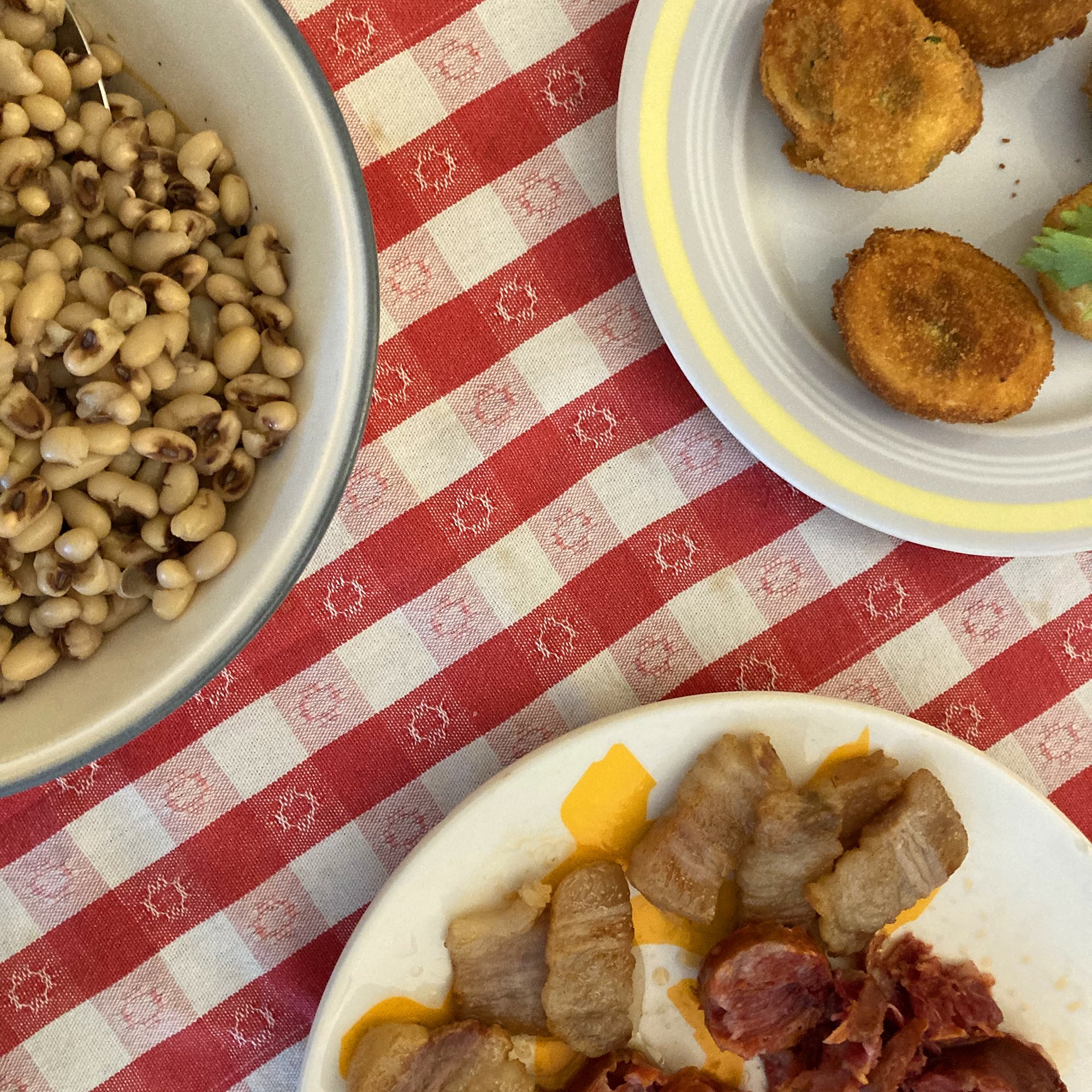A modest Gastronauta
Feijão Frade, Ovos Verdes and Chouriço de Alter do Chão. Foto de Filipe Gill
As I walk through the door of his house, Luís warns me: Isto é comida de pobre – this is poor man’s food. I have heard it so many times before; it’s in his nature to downplay the quality of the food he makes.
As we seat down for a mid-week lunch, I glance at the table and see two very important things: a bottle of wine and beautiful olive oil from his native Beira Baixa. It is a good start and an indicator of things to come.
He is right in a way: this is the peasant food of yesteryear. But today this is pure luxury: superior ingredients cooked in a way that enhances quality, honours history, and respects the environment. Three in one!
Let’s begin with the star of the meal. Humble Feijão Frade (black-eyed peas). But these are no ordinary beans: grown in “sequeiro” (meaning with no added water, thus concentrating more the flavour). Luís regularly goes to Castelo Branco – the capital city of Beira Baixa, some 250km northeast of Lisbon – especially to buy some key ingredients for the family diet: fruit, vegetables, pulses, mainly beans and chickpeas, olive oil, bread, and ‘farinheiras’. I think he does it for two reasons: first: it is a way to keep him connected with his family roots; second, because he knows these ingredients are better than supermarket-bought stuff. And I forgot a third reason: because it tastes much better.
The beans are soaked in cold water overnight, and cooked in the pressure cooker.
On this meal we had the perfect companions for the beans:
Ovos Verdes (hard boiled eggs, stuffed, breaded and fried), a typical snack of southern Fundão;
Chouriço de Alter (from the town in Alentejo famous for it’s horses) bolied in water and sliced in nice chunks;
Toucinho de porco ‘Bísaro’. Bacon fried to crispy status. But this is salt-dried toucinho; no chemical processing involved. More on ‘Porco Bísaro’ in a future article.
The beans were served with a refreshing mixture of red onion and parsley and topped with beautiful, fruity olive oil from Fundão. (see pictures below).
The wine was just right for this meal: Mula Velha Tinto from Quinta do Gradil in Cadaval, some 50km north of Lisbon. ‘Mula Velha’ means ‘Old Mule’ and it also refers to a Portuguese expression meaning someone wise and experienced.
Luís is, in essence, a Gastronauta. Because he brings a moral dimension to his food. If only for that he deserves my respect.
Luís Barata Dias is also a patient teacher and a keen photographer. He will tell you his photography is no good. Just like his food. But again, I have to disagree with him.
Dried Feijão Frade (black Eyed Peas) in Lardosa, Beira Baixa. Foto by Filipe Gill
Serving the Feijão Frade. Foto by Filipe Gill
Olive Oil from Fundão, Beira Baixa. Foto by Filipe Gill




